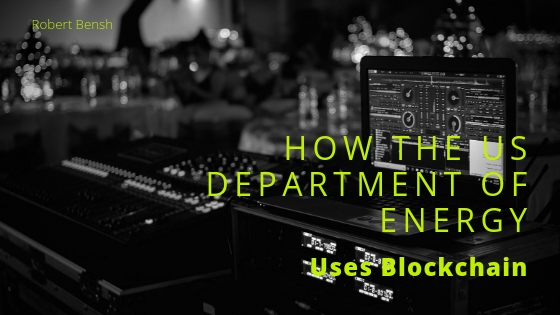The U.S. Department of Energy’s (DOE) National Energy Technology Laboratory (NETL) is the latest organization to capitalize on blockchain’s potential. Blockchain has disrupted industry after industry, and the DOE is ready to leverage blockchain when it comes to national security.
The DOE has teamed up with the technology company Taekion, known in the past as Grid7, LLC. The group, which is based out of Colorado, is working with them on an electric grid security project. The goal of this project? Preventing cyberattacks on power plants by using security applications built on blockchain technology.
Blockchain is still a relatively new technology. The system works as a digital ledger. Every piece of information is stored in a section, or block. Each of these blocks are linked together to form a chain. One of blockchain’s great advantages is that the data is distributed instead of stored in a centralized location. The system is also virtually tamper-proof. Everyone who has access can view the data at any given time. When the system is updated, any changes are timestamped.
Taekion is now researching how they can leverage these advantages (and their $1 million budget) to secure power plants from potential cyberattacks. Their goal is to keep all information about sensor, actuator and device transactions on a distributed ledger instead of in a single centralized location. This way there is no single point of failure.
Easily accessible and accurate information about a power plant is crucial to maintaining the security of its electric grid. An attack on the electric grid could completely shut down a power plant. We saw an example of this style of attack in Ukraine when hackers compromised the system and left people without power. The DOE and Taekion hope to prevent similar occurrences by preventing hackers from accessing and adjusting the plant’s operational information.
The movement to secure power plants is an important part of DOE’s Office of Fossil Energy Sensors and Controls program. This program was launched by the Crosscutting Research Portfolio of Programs, which is responsible for providing insights about plant performance and reliability. This group also implements and encourages technological megatrends such as advanced manufacturing processes.
Could blockchain be the next breakthrough when it comes to securing power plants from cyberattacks? The DOE’s latest project with Taekion could be a pivotal step into a more secure future.

